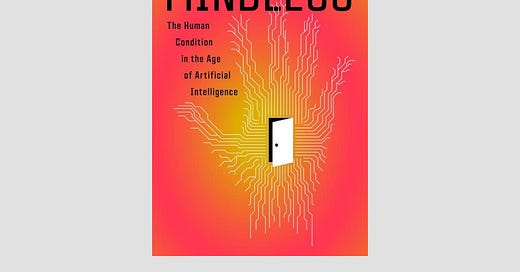BOOK REVIEW: Mindless (The Human Condition in the Age of Artificial Intelligence)
By Robert Skidelsky. Other Press, New York. Hard cover, 373 pp with bibliography and index. US$29.99
Ten thousand years ago, according to the distinguished British economic historian Robert Skidelsky, human brains were fully formed and about as advanced as they are today. But it took thousands of years to go from bows and arrows to machine guns. There were thousands of years in which there was no technological progress at all.
Dynamism, he writes in this history of humanity's relationship with machines, cannot be stagnant. It is either there or it isn’t and, it seems, nobody knows what sparks it. Certain things have to happen to set it off. For instance, the entire peoples of what is now North and South America, home to the powerful Inca civilization, capable of advanced agricultural and roadway systems, centralized language and religion, and military strength, apparently never figured out the wheel.
In this remarkably erudite treatise, Baron Skidelsky – a British Life Peer – sets out to try to plumb the questions the progress of technology pose, to sketch out the interface between capitalism and technology and between science and religion that led to the making of the modern world. It is a quest to tell how humanity’s association with technology plays out, from the first bone used by the first caveman as a tool, perhaps to pound another caveman on the head, to the computer, to energy technology to stealth avionics, and into the future. Melding together philosophy and science, the foundation of economics and religion, he seeks to take us on an intellectual journey on how to understand the current development of technology and what this means for our lives and politics…




